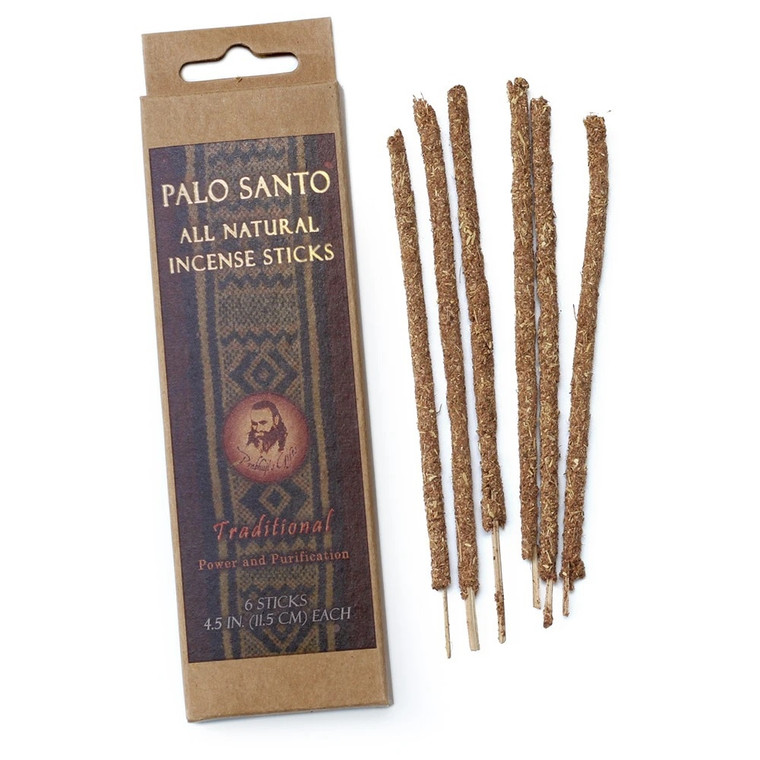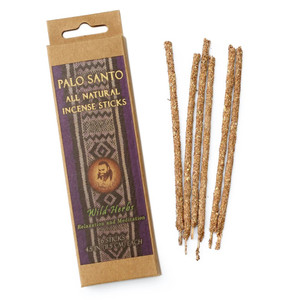
Palo Santo Traditional Prabhuji Smudging Incense Sticks
This Palo Santo stick incense is handmade in the rural Colombian Andes. The Palo Santo wood is harvested strictly from trees that have fallen from natural causes, allowing the natural aroma of its oils to concentrate and intensify. This Smudging incense is used to promote Power and Purification by clearing out negative energy.
Palo Santo has been burned by shamans for centuries to clear negativity, attract positive vibrations, and allow the naturally fragrant smoke of this sacred wood to enter the energetic fields. In shamanic tradition Palo Santo smoke also enhances meditation and concentration. These sticks are made of a blend of 100% natural ingredients. no chemical or isolated oils. 6 sticks, 5" each packaged in 100% unbleached recycled cardboard boxes with designs inspired by the indigenous cultures of South America
Ingredients: Palo Santo (bursera graveolens), bamboo, coconut, pine, fruit juice, cornstarch.
Aroma: Woody, sweet.
Intention: Power and purification.
Key benefits:
- Part of a Shamanic tradition.
- Aromatic, 100% natural incense
- Energetically purifying.
- Certified Vegan.
- Bestows power and purification.
- These incense sticks are handmade in the rural Colombian Andes, providing employment to marginalized artisans.
- Sustainably harvested: part of the profits go toward financing the Palo Santo Reforestation Project organized by the Forestry and Environmental Corporation of Manabi (CORFAM) which is fully acknowledged and supported by the Food and Agriculture Organization of the United Nations (FAO).





